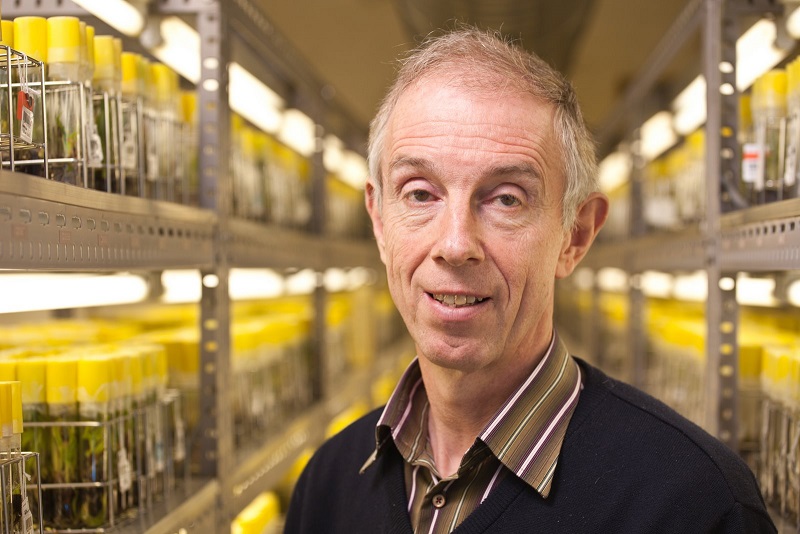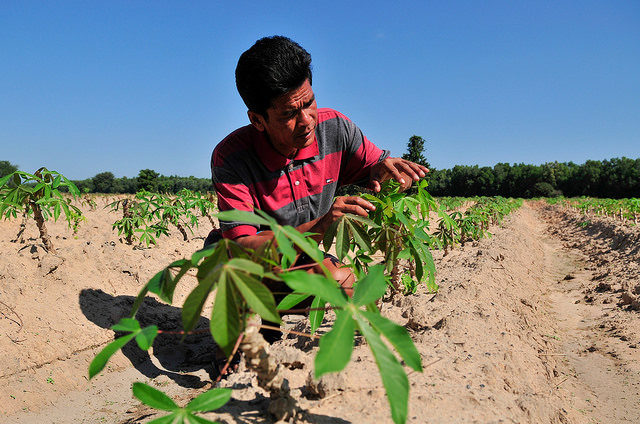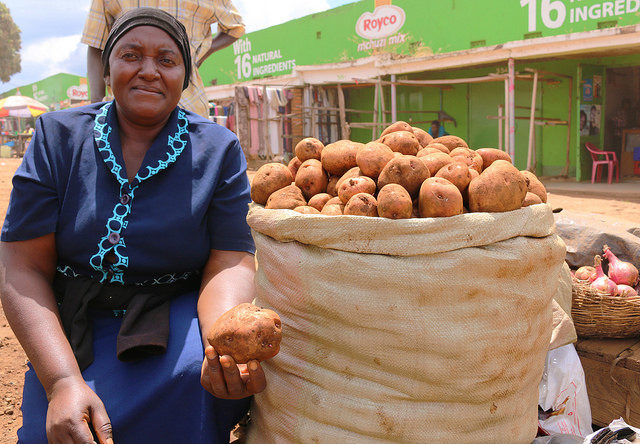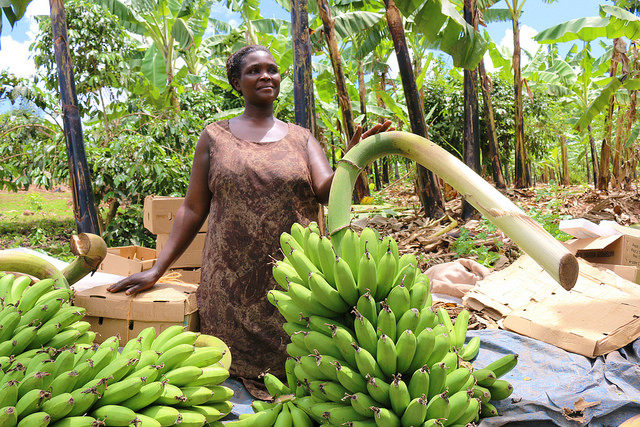For Rony Swennen, professor at the Belgian university KU Leuven, joining RTB last year was the next logical step in his 35-year career working on Musa (the genus of bananas and plantains). A renowned banana researcher at one of the world’s best universities, he brings a wealth of knowledge and experience to the research program, along with many ideas for improvement.
Belgium’s history with bananas can be traced back to the 1930s, when Belgian scientists started research on bananas and plantains in what is now the Democratic Republic of Congo, Rwanda and Burundi. Edmond de Langhe, a KU Leuven professor emeritus, began studying and collecting Musa species in the region in the 1950s, and in the late 1970s, he received a grant from the Belgian government to start research on plantain at the International Institute of Tropical Agriculture (IITA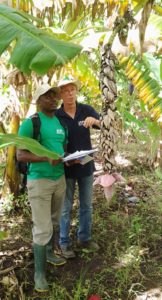 ). Swennen, who was working towards his PhD at KU Leuven, joined IITA as a plantain physiologist and agronomist in 1979, and subsequently built up the Institute’s plantain research program. Results followed, such as the development of 14 black Sigatoka-resistant plantain varieties in 1987, for which IITA received the CGIAR King Baudoin award in 1994. “Nigeria even issued a postal stamp for this achievement,” Swennen explains, “And I received the honorary title of ‘chief’ in Nigeria.”
). Swennen, who was working towards his PhD at KU Leuven, joined IITA as a plantain physiologist and agronomist in 1979, and subsequently built up the Institute’s plantain research program. Results followed, such as the development of 14 black Sigatoka-resistant plantain varieties in 1987, for which IITA received the CGIAR King Baudoin award in 1994. “Nigeria even issued a postal stamp for this achievement,” Swennen explains, “And I received the honorary title of ‘chief’ in Nigeria.”
Belgium continued to fund IITA research on plantains, and over the years, a world-class banana collection was developed at KU Leuven. in 1985, Belgium, Canada and France created the International Network for the Improvement of Banana and Plantain (INIBAP), which eventually became Bioversity International. Edmond de Langhe was the first director of INIBAP, which assumed responsibility for the banana collection at KU Leuven.
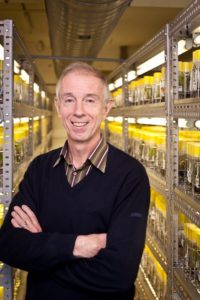 Swennen succeeded him as the head of the INIBAP Musa collection – now called the International Transit Centre – while continuing to assist IITA with Musa breeding. He also began teaching at KU Leuven, where he became a Full Professor in the Faculty of Bioscience Engineering in 1997.
Swennen succeeded him as the head of the INIBAP Musa collection – now called the International Transit Centre – while continuing to assist IITA with Musa breeding. He also began teaching at KU Leuven, where he became a Full Professor in the Faculty of Bioscience Engineering in 1997.
In February 2013, Swennen became the head of the Bioversity International office in Belgium, and at the same time, he was put in charge of the Musa breeding activities at IITA. “Getting a joint contract with Biodiversity International and IITA is such a unique opportunity,” he says. “I am happy to be the banana-bridge between the two centers; let’s remember that we are all CGIAR and that the centers complement each other.”
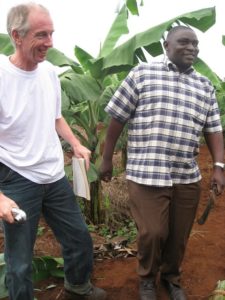 Swennen insists that scientists need to break down the walls between research centers “for the sake of the farmers,” and because “we need to go faster for impact.” He stays in close contact with farmers, especially in Africa. One of the achievements he is most proud of is the Cooperation Excellence Award the UN annual global South-South Development Expo gave in 2010 to a project implemented by Belgian Technical Cooperation under the guidance of KU Leuven in the Kagera Region of Tanzania, where more than a million people depend on bananas for their livelihoods. That project built upon the work of the International Musa Testing Programme, which was funded by UNDP and executed by INIBAP. A rapid adoption of new varieties and the distribution of 6 million suckers resulted in a threefold increased income for half a million farmers in northwest Tanzania.
Swennen insists that scientists need to break down the walls between research centers “for the sake of the farmers,” and because “we need to go faster for impact.” He stays in close contact with farmers, especially in Africa. One of the achievements he is most proud of is the Cooperation Excellence Award the UN annual global South-South Development Expo gave in 2010 to a project implemented by Belgian Technical Cooperation under the guidance of KU Leuven in the Kagera Region of Tanzania, where more than a million people depend on bananas for their livelihoods. That project built upon the work of the International Musa Testing Programme, which was funded by UNDP and executed by INIBAP. A rapid adoption of new varieties and the distribution of 6 million suckers resulted in a threefold increased income for half a million farmers in northwest Tanzania.
Recognition of the work done by KU Leuven also came from Asia. In 2009, Swennen received the Kadali Puraskar award in India during the Second National Congress of healthy planting materials in banana. In 2000 all the national banana programs in Asia gave him the Pisang Raja award to acknowledge 21 years of outstanding accomplishment in banana breeding and biotechnology.
Being a professor also brings Swennen a lot of satisfaction. He likes to say that he gets the best of two worlds, doing field work and supervising doctoral candidates. He is currently fascinated by the results gathered by a student from DR Congo who has been collecting plantains across the country. “There is so much diversity to be found in central Africa, it is baffling!”
Swennen is passionate about banana improvement and wants to focus his work on sub-Saharan Africa. “Breeding needs a boost, but there has been a paradigm shift in banana research. Researching resistant and high-yielding varieties is not enough; we should first consider the farmers’ taste and requirements. Then comes the breeding work for resistant varieties,” he explains. “We need to dramatically improve collaboration. With the changes in CGIAR, I am happy to be back. The good thing is, the potential is enormous, because we are just starting.”
By Véronique Durroux-Malpartida
